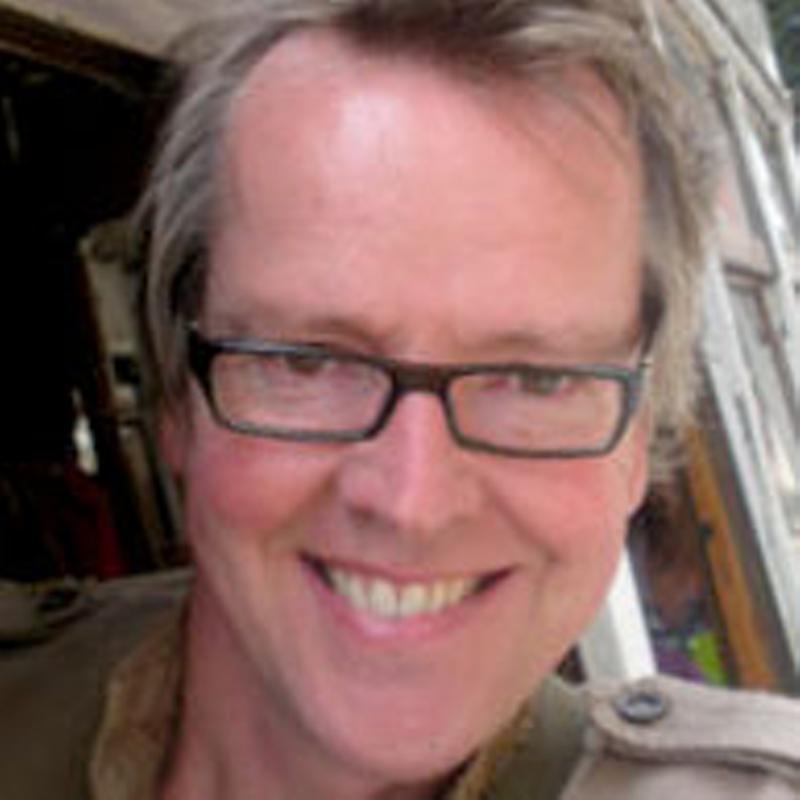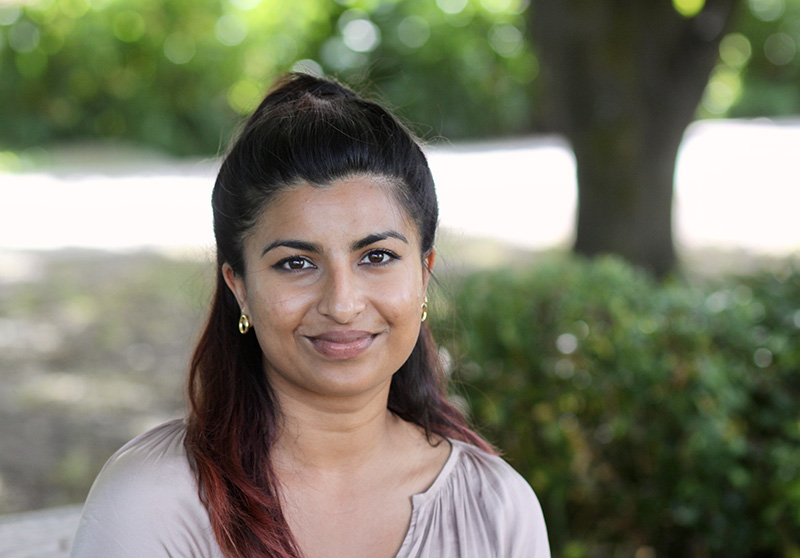Do not call Anjali Appadurai a one-issue candidate.
Climate, she insists, is not a distinct political category. “I think it's a mistake to frame climate as one file alongside other files,” she says, “and I think that's a trap the party has fallen into, seeing climate as one of the priorities they have to juggle. We need a reprioritization of our entire economy to confront the climate crisis.”
The party Appadurai is referring to is the BC NDP. Thanks to her, its leadership race has belatedly become one. Appadurai, a former federal NDP candidate for the Vancouver-Granville riding, declared her intention to challenge David Eby last week and thus transformed what had been a triumphal procession into a contest.
It's not quite the situation Appadurai had anticipated. “I expected other candidates,” she says. “When folks were pushing me to step up into this role the assumption was there would be a couple of other voices in the race, and we would be able to highlight the contrast between those voices and show there is a viable third option.”
Still, the lack of candidates did firm up her decision to run.
“It was looking like it would be a no-questions-asked coronation,” she says. “That's not good for democracy.”
‘It's about telling a cohesive story’
Appadurai’s goal is to make sure that climate issues have a strong voice in the campaign, and to represent those who feel the provincial NDP has fallen short of its responsibilities.
“I was put forward into this race by a movement,” she says. “It was really a community decision. It's the environmentalists and the folks who really care about climate. It just seemed like the party was not signalling any departure from the way it’s been operating.”
“I think the challenge of this campaign is telling the story of the climate emergency and what a meaningful response will look like,” she adds.
“A total reframing is needed. To confront the climate emergency we need to not only reprioritize the economy away from our current practice of rewarding and incentivizing industry, allowing industry interests to come above people's interests. It's also about putting a different set of values into our decision-making.”
As the sole challenger to Eby, Appadurai could potentially become a focal point for Eby opponents of different stripes. But Appadurai seems to have little interest in being a lightning rod for various party factions. “It's not about taking different people's interests and trying to reflect them in a policy platform,” she says. “It's about telling a cohesive story that says there's a better way of doing things. It's not just climate, and then all of the other issues. It has implications for housing, for health care, for the overdose crisis. These are all symptoms of intersecting crises.”
“Tackling the chokehold the fossil fuel industry has on our economy has to be addressed. I believe that is in the best interests of workers across the province. We cannot have a transition away from fossil fuels that does not put workers first. I am not here to be a moral crusader and to advocate the immediate and shocking dropping of fossil fuels — I am here to advocate for a strong, politically courageous, managed decline of the fossil fuel industry from the top down. It is about jobs and livelihoods. Unfortunately I think jobs and climate have been pitted against each other in what I think is a false dichotomy. Some of the youth say it best: 'No jobs on a dead planet.' That sums it up.”
There's another sign Appadurai is not operating from the standard political playbook. An insurgent leadership campaign can often be employed as a springboard to greater party prominence, possibly even a cabinet position. But Appadurai says that, should she lose her bid for the leadership, she has no intention of seeking a seat in the legislature. “With an Eby government, I might be best placed outside of government to do this kind of work,” she says.
Anjali Appadurai was born on May 27, 1990, in Madurai, a town in India's Tamil Nadu province. “It's the town my mother grew up in,” she says. “It's known as the temple city of south India.”
Her family moved to Coquitlam when she was six. Why Canada? “I think it was the education aspect that attracted my parents,” she says. “They chose to leave everything behind so their kids could have a better education that was less strict and more well-rounded. And that's what I got.”
‘A heavy dose of reality’
While attending Gleneagle Secondary in Coquitlam, Appadurai was already getting involved in human rights work via the Red Cross. “I formed a global issues club at high school,” she says. “We focused on issues like land mines, child soldiers and the small arms trade. I was really passionate about fair trade. To this day I am really interested in trade issues. I think they are a major blocker of progress on climate.”
Appadurai earned a provincial scholarship to the United World College, a two-year international baccalaureate program with schools around the world. Hers was located in Montezuma, New Mexico. She followed that with four years in Maine at the College of the Atlantic. “During that time I began working on the international climate justice circuit with a coalition of groups that were supporting developing countries' positions at UN climate negotiations,” she recalls.
“My story of the world was really built around that time, because I saw how colonial power shapes climate action. And I saw Canada show up at those talks year after year in a really devastating and disappointing way, blocking climate progress, not fulfilling our commitments, while allowing those most vulnerable in our own country to be acutely affected. I won't say I got jaded. But that was a heavy dose of reality in terms of what power looks and acts like. I am under no illusions now about how power works.”
Appadurai first stepped into the public spotlight in 2011 when she delivered a much-viewed speech at the UN Climate Change Conference in Durban. She eventually returned home to take a job with West Coast Environmental Law at the end of 2014, collaborating with lawyer Andrew Gage on what became the Sue Big Oil campaign, a class-action lawsuit by B.C. municipalities against five of the largest fossil fuel companies. “It was a real eye-opening experience,” Appadurai says, “especially when it came to seeing how much of the cost of climate change falls upon local government.”
In the 2021 federal election Appadurai made her first foray into electoral politics for the federal New Democrats in Vancouver-Granville, narrowly losing a closely observed contest against Liberal candidate Taleeb Noormohamed.
‘A cool guy’
Now she is standing athwart the Eby victory caravan. A daunting task but not, she insists, purely quixotic.
Nor does she feel being an activist is incompatible with being leader of the province. “Being premier would be an incredible way to bring my activist background and the values that I built to the foreground,” she says, “and to build an incredible team of the best people I know in the province — a chance to build a government that understands the stakes of what we're up against and how that fits with our economic priorities. It would be an activist-creating government.”
Appadurai is certainly not running as an Anybody-But-Eby candidate. “He's a cool guy,” she says of her opponent. “I think it was clear that out of the current caucus he was the best person for the job.”
But she pronounces herself deeply disappointed in Premier John Horgan. “The people I am representing are disillusioned,” she says. “They feel the government has been misleading them, telling them they have things under control.”
Can Appadurai be successful if she is in effect running against the party she hopes to lead?
“I would flip that around,” she says, “and say we are running for the party, for the soul of the party. We are running for what the NDP is supposed to represent, which is public interest over private interest, and investing in people. Those are New Democrat values, and I hope to remind people of that.” ![]()
Read more: Municipal Politics, Environment
















Tyee Commenting Guidelines
Comments that violate guidelines risk being deleted, and violations may result in a temporary or permanent user ban. Maintain the spirit of good conversation to stay in the discussion.
*Please note The Tyee is not a forum for spreading misinformation about COVID-19, denying its existence or minimizing its risk to public health.
Do:
Do not: